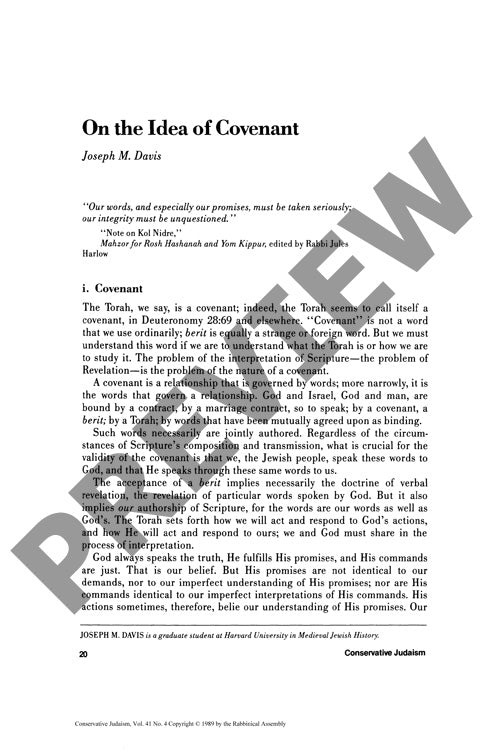On the Idea of Covenant
Couldn't load pickup availability
When God and humans forge a covenant, they embark on a shared project of authorship and interpretation that defies both rigid fundamentalism and wholesale rejection of divine revelation. The concept of covenant (berit) emerges from the Torah as "words that govern a relationship" between divine and human partners, demanding ongoing interpretive dialogue from both sides. Through philosophical analysis and close reading of biblical narratives, this investigation reveals how key figures navigate the challenges of covenant interpretation—from Joseph as the model covenant observer, to Jephthah ensnared by literalism, to Amnon's self-serving distortions. These cases demonstrate how authentic covenantal interpretation must balance divine intention (da'at ha-Makom) with communal understanding (da'at bet din). While perfect interpretation remains beyond reach, the annual ritual of Kol Nidre—where vows are simultaneously dissolved and renewed—shows that the covenantal relationship itself cannot be abandoned. Rather than a rigid trap, covenant functions as a living language through which communities articulate moral imperatives and maintain divine relationship, even in the face of interpretive uncertainty and historical tragedy.

More Information
-
Physical Description
-
Publication Information
Published 1989
ISBN
-
Publication Credits
Joseph Davis

